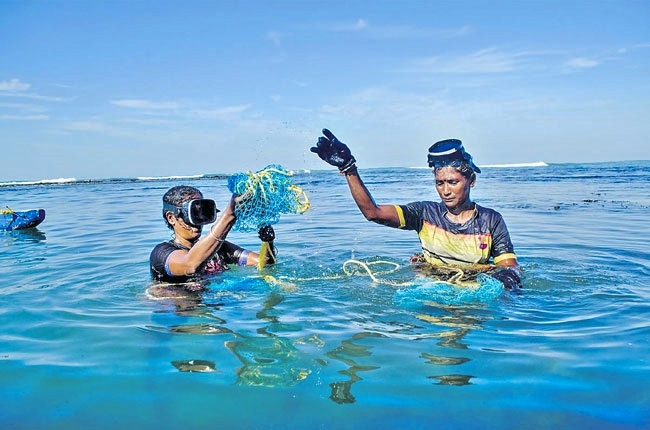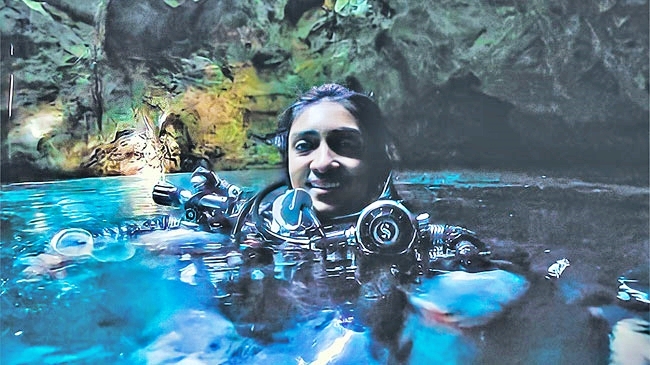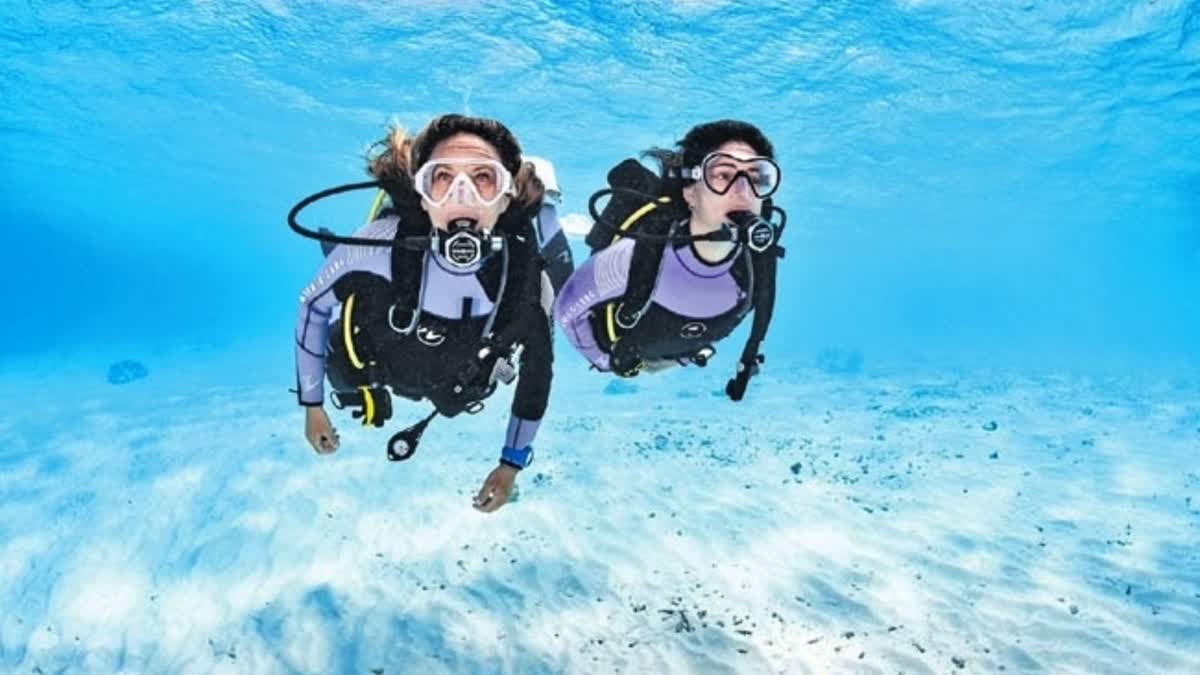Oceans have an incredible ability to give us bountiful oxygen. How can we continue to breathe if our oceans are in danger? The solution lies in research and exploration. This will be all the more possible if women are actively involved in this. Experts suggest that getting more women involved in fields like scuba diving, oceanography, and marine science will yield greater results in protecting our oceans from pollution. Then why should women join this? The answer is as follows.
The vast oceans covering three-quarters of the Earth hold countless secrets waiting to be discovered! At 88 years old, Sylvia Earle, a renowned oceanographer, firmly believes that true understanding lies in exploring the depths of the sea. Her lifelong dedication to ocean exploration has led her to dive 1200 feet deep, earning her the title 'Her Deepness'. She even founded Mission Blue and led sea journeys with her daughter, Liz. Sylvia's unwavering passion for marine life has also led to groundbreaking initiatives, such as leading an all-women team on a sea expedition to raise awareness about marine conservation.

Women as oceanographers: Sylvia strongly emphasizes the unique advantages that women have in underwater exploration. She points out that their physical attributes, such as smaller stature and lung capacity, make them better suited for activities like scuba diving. Sylvia urges women to embrace their natural qualities and boldly pursue careers in marine biology, oceanography, and ocean photography. Even though 69 per cent of the diving industry is male-dominated, Sylvia is optimistic about the increasing participation of women in exploring the seas as oceanographers and scuba divers.

First expedition: French admiral Jacques was the first to invent the ‘Aqua-lung’ device for underwater travel. The original inspiration for that invention was Jacques's wife, Simone. Simone became famous as she was the first female scuba diver who went into the ocean. After that, more women started taking to it. In our country, Neela Bhaskar from Chennai has become the first certified cave diver in the country. Just like on land, there are mysterious caves under the sea. Hazardous gases emitted from these caves are also one of the reasons for sea pollution. They will explore those caves and provide adequate information for research.
Many women are taking interest in sea exploration. Maya Pillai, Palak Sharma, Madhumathi, and Archana Sardana are making scuba diving a career. The Women Divers Hall of Fame organization promotes women in diving worldwide by providing scholarships and networking support.
Traditional Indian divers: In the Pamban region between Sri Lanka and India, the temperature is usually high. To protect their hands from the sharp rocks in the sea, they tightly wrap them in rags, while wearing rubber sandals on their feet. In addition, they secure a sack around their waist to guard against poisonous fish. Every single one of them is between fifty and sixty years old. Regardless of age, they bravely jump into the sea. After holding their breath for a few minutes, they pick up the golden sea moss. After reaching the shore, the moss is taken away and sold in kilograms. They don't have any equipment to go underwater like the scuba divers. These women are traditional Indian divers who have been practicing this skill for generations, diving for moss. This is exclusively done by women, and men do not take part in this activity. This work demands a great deal of patience and tolerance. It is crucial to hold your breath as planned. This is how these individuals make their living. The moss is only harvested when the impact of the waves is minimal. After harvesting, they take a break and resume hunting once the moss has regrown. Over 5,000 people in Tamil Nadu are earning their livelihood from this.
There are numerous opportunities in marine science and sea exploration and it's essential to raise awareness about sea diving, said Richa Malik, scuba instructor.
"The oceans, which are our source of pure oxygen, are under threat from plastic and other waste pollution. The warming ocean waters are leading to the decline of seaweed. As an experienced diver, I am well aware of the situation. It is imperative to increase the number of divers to tackle the problem of marine debris," said Neela Bhaskar, a cave diver.
Read More



